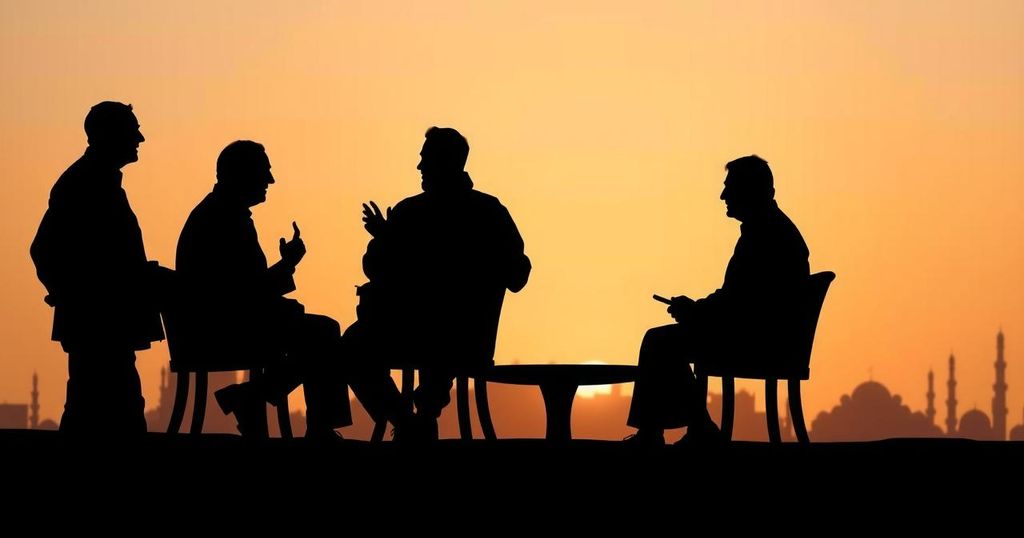President Biden and President Macron have called for a temporary ceasefire between Israel and Hezbollah to enable diplomatic discussions aimed at resolving the ongoing crisis at the Israeli-Lebanese border. This joint statement follows intense fighting resulting in over 700 deaths, emphasizing the need to protect civilians and prevent further escalation of conflict. Various nations and organizations have endorsed this appeal, highlighting the increasing urgency for a diplomatic resolution.
On Wednesday, President Joseph R. Biden Jr. of the United States and President Emmanuel Macron of France jointly urged Israel and Hezbollah to reach a temporary ceasefire agreement, aimed at facilitating diplomatic discussions to resolve the ongoing crisis at the Israeli-Lebanese border. This appeal comes during a period of heightened violence, particularly over the past ten days, which has resulted in over 700 fatalities in Lebanon. The urgency of their appeal stems from the potential for further escalation, specifically concerning a possible Israeli ground invasion into southern Lebanon to displace Hezbollah militants. Reports indicate that the Biden administration is collaborating with France along with several other nations to propose a “pause” in hostilities, enabling negotiations pertaining to a ceasefire and addressing the situation in Gaza. During their meeting on the sidelines of the United Nations General Assembly in New York, both leaders engaged in discussions regarding this diplomatic initiative and subsequently released a statement advocating for the ceasefire. Their formal declaration highlighted the necessity for a resolution along the Israel-Lebanon border to ensure the safety of civilians, allowing them to return to their homes. The statement read: “The exchange of fire since October 7th, and in particular over the past two weeks, threatens a much broader conflict, and harm to civilians. We therefore have worked together in recent days on a joint call for a temporary ceasefire to give diplomacy a chance to succeed and avoid further escalations across the border.” The appeal has garnered support from several international entities, including Australia, Canada, the European Union, Germany, Italy, Japan, Saudi Arabia, the United Arab Emirates, and Qatar. Discussions concerning this initiative were initiated following a telephone conversation on Monday between National Security Advisor Jake Sullivan and Israeli Minister of Strategic Affairs Ron Dermer. Over the past couple of days, U.S. officials have been actively engaging with partners—France, Israel, Lebanon, and various Arab nations—to solidify support for the ceasefire. Secretary of State Antony Blinken has held multiple discussions with his French counterpart, during which they exchanged drafts of potential statements advocating for a ceasefire. Furthermore, Blinken held focused one-on-one conversations with Saudi and Qatari foreign ministers to secure their backing for the U.S.-French initiative. As the situation continues to develop, the united call for a ceasefire stands as a critical measure against further conflict escalation and towards achieving a durable peace in the region.
In recent weeks, the region surrounding the Israeli-Lebanese border has experienced significant violence, fueled by longstanding tensions between Israel and Hezbollah. The confrontations intensified after a series of military engagements that escalated concerns over civilian casualties and broader regional conflict, prompting international leaders to seek diplomatic solutions. Amid this turmoil, President Biden and President Macron recognized the need for immediate action, emphasizing the importance of preventing further escalation through a temporary ceasefire that would allow for negotiations aimed at establishing a lasting resolution.
The joint statement by President Biden and President Macron highlights an urgent call for a temporary ceasefire between Israel and Hezbollah amidst a backdrop of escalating violence and civilian endangerment. By advocating for diplomatic negotiations to address the persistent conflict in the region, the leaders demonstrate a commitment to not only mitigating immediate hostilities but also fostering a pathway toward lasting peace and security along the Israeli-Lebanese border, with support from various nations.
Original Source: www.axios.com







